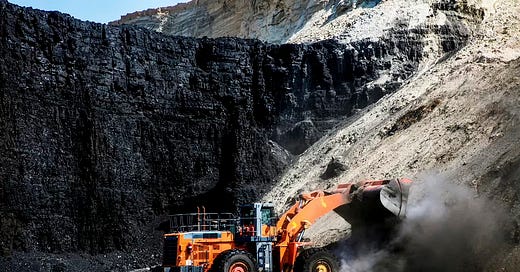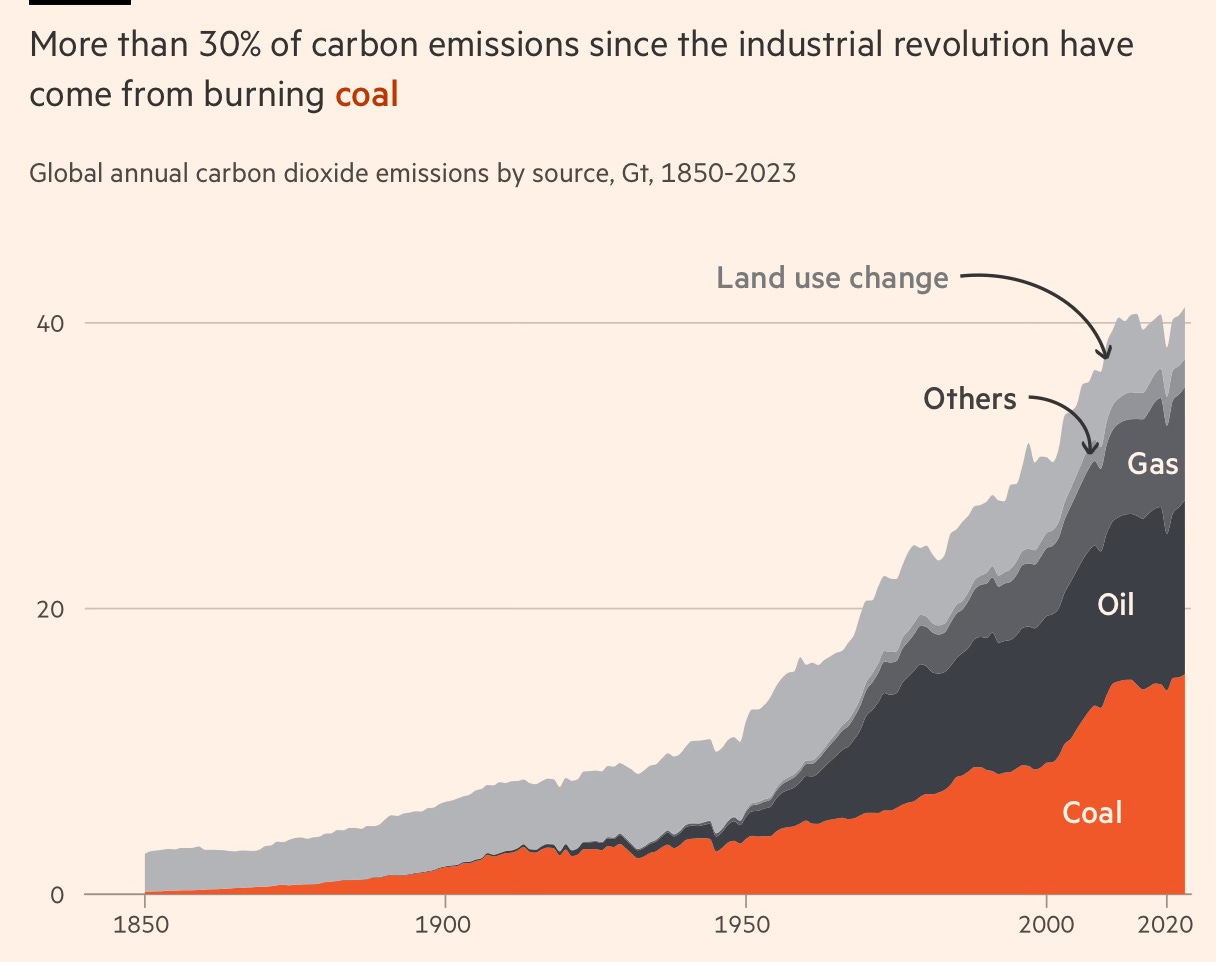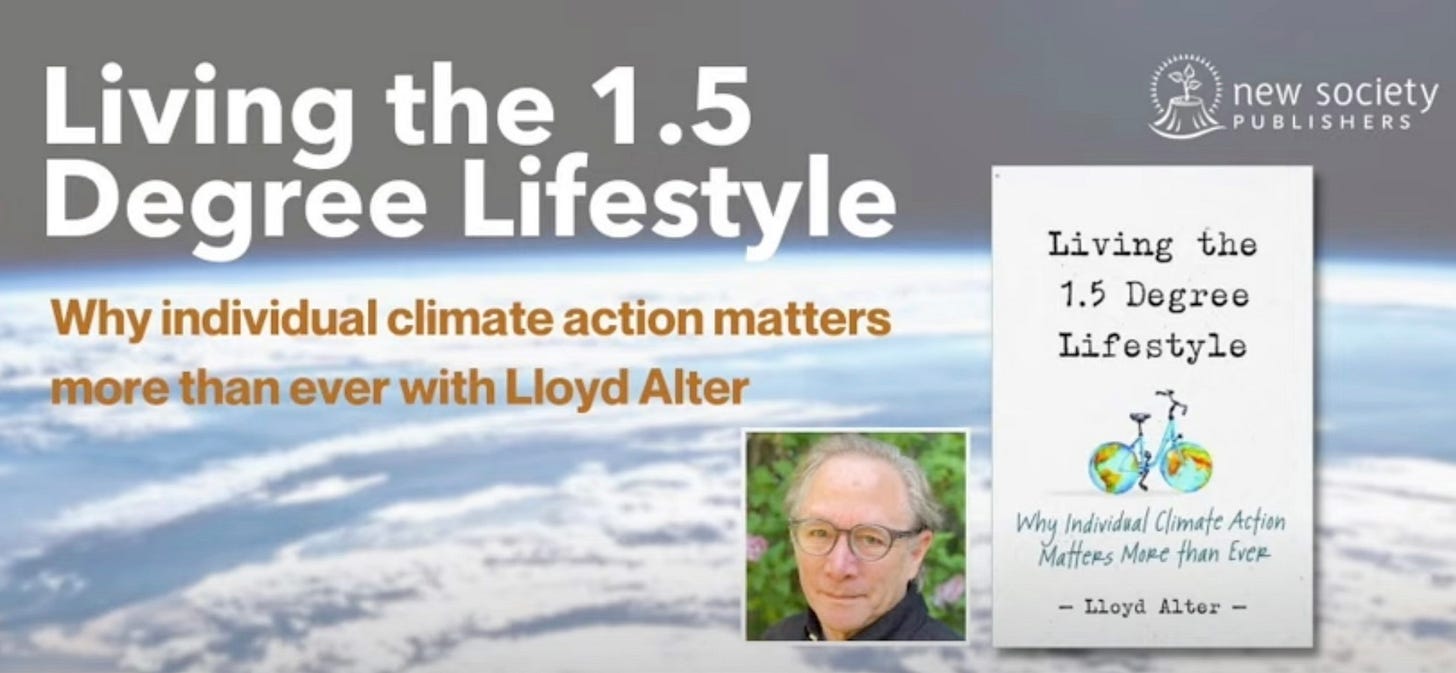Why we keep burning things: It drives the economy
There's a reason some politicians pour more fuel on the fire and even the most climate-aware ones can't give it up.
In a post titled Vandalism, with a plan, Bill McKibben describes how the Trump administration is killing Energy Star, auto fuel economy programs, and doing just about everything they can to promote the burning of fossil fuels. He infers from all of this:
“Occam’s Razor, I think, would lead us to say that many things the Trump administration does are simply designed to waste energy, because that is good for the incumbent producers, i.e. Big Oil. That’s not a particularly sophisticated rule for understanding their actions, but remember: Trump was bankrolled by the fossil fuel industry, and that industry has always wanted us to waste energy.”
Occam’s Razor is usually interpreted as “the simplest explanation is usually the right one.” But in this case, I suspect that the answer is a bit more complex. There is a reason that previous Democratic Presidents didn’t do much to reduce drilling for fossil fuels, or that in Canada, Justin Trudeau bought a pipeline. There is a reason that the Premier of Alberta is demanding the scrapping of clean energy regulations or prohibitions on single-use plastics, and Mark Carney is supporting ridiculous carbon capture fantasies. It’s not just Trump and Big Oil- It’s everyone, everywhere.
The late economist and physicist Robert Ayres explained that wasting energy is what drives the economy. It is the economy. Every politician wants to juice the economy, and nothing juices it faster and better than burning fossil fuels. I tried to explain in my book, The Story of Upfront Carbon:
Economist and physicist Robert Ayres noted, “The economic system is essentially a system for extracting, processing and transforming energy as resources into energy embodied in products and services,” or, as I simplified it in my last book, the purpose of the economy is to turn energy into stuff.
Ayres doesn’t have much time for traditional economics, but teaches that economics is subject to the laws of thermodynamics, which is very convenient when thinking of energy and carbon.
“The first law of thermodynamics, conservation of mass/energy, says (among other things that all industrial processes—extraction, reduction, synthesis, shaping and forming—generate waste residuals. The mass of residuals from industrial activity far exceeds the mass of materials.”
Those economic processes consume exergy and turn it into goods and services, waste heat, upfront carbon emissions, and eventually landfill. So those of us who call for fixing things instead of buying new, of buying less, of using less stuff on our buildings and our lives, are not doing our main economic function: consuming energy in the form of goods and services.
As prominent degrowther Giorgos Kallis notes in an essay, “Radical Dematerialization and Degrowth,” renovating and retrofitting buildings use more labour and fewer materials than knocking buildings down and replacing them, but produces less profit. “A retrofit economy is possible, but its houses and cars may look more like Cuba’s than California’s.” Investment in renewable energy creates jobs, but then those solar panels just sit there generating power, whereas with fossil fuels, you always have to dig up more stuff.
In summary, burning stuff creates wealth, and not just for the oil companies. We all play a role in this in our building, buying or selling everything made with energy. The waste, the CO2, it is part of the deal; As Allison Bailes explained, it is a function of how heat engines work. “As it turns out, we’ve known this limitation for nearly 200 years. A French kid named Sadi Carnot figured out that there’s a limit on the efficiency of heat engines.”
Bucky Fuller had this all figured out with his concept of “energy slaves.” Stuart McMillen explains in his wonderful graphic novel how “Bucky saw that coal, oil, and gas were batteries for ancient sunshine that allowed civilization to, for the first time, live beyond its solar income.”
In Energy and Civilization: A History, Vaclav Smil describes how the increasing energy density of fossil fuels enabled the explosion of population and wealth we have seen in the last hundred years.
“All of these developments have combined to produce long periods of high rates of economic growth that have created a great deal of real affluence, raised the average quality of life for most of the world’s population, and eventually produced new, high- energy service economies.”
It is not just oil companies and the politicians in their pockets; history and Robert Ayres teach us that energy and waste turbocharge the economy and power growth.
This morning, the Financial Times looks at the dramatic growth in coal consumption,
“Coal is evil stuff, from an environmental point of view,” says Sir Dieter Helm, professor of economic policy at Oxford University, pointing to its climate effect as well as the impact on human health. “But from an economic perspective, it is fantastically cheap, it is widely available, it can be stockpiled really easily, and it produces really intense heat.” The world’s energy needs are growing so quickly that the world simply needs more of everything, says Helm — more renewables, more nuclear, and more oil, gas and coal. “Very sadly, there isn’t a transition” away from fossil fuels and towards renewable energy, he says — instead, it is an increase, in all directions.
Bill McKibben concludes:
“So the goal for the rest of us, as we resist Trump and resist climate change, is pretty clear: do everything we can to speed up this transition to clean energy, here and everywhere. Solar works, solar is cheap, and solar is liberating.”
But that’s not enough. Some politicians might promote greater efficiency and more renewables, as Joe Biden did, but he still oversaw the growth of US fossil fuel production to the highest levels ever, at 12.9 million barrels per day by the end of 2024. That’s why we have to grab on to that third leg of the stool- sufficiency.
We also have to make less stuff and use less stuff, and figure out what’s enough. And that is always a hard sell.
William Rees, who co-invented the ecological footprint, looks at economics in his new Substack: Is neoliberal economics a science?
Special offer!
I do not want to put up a paywall on this site, but it provides a meaningful portion of my income. So here’s a limited-time offer: I will send a signed copy of the print edition of “Living the 1.5 Lifestyle” to anyone in the USA or Canada who signs up for a one-year subscription (C$50, cheap at about US$35 ).








I was wondering what I was going to write about. Now I know. Thanks, Lloyd!
"The late economist and physicist Robert Ayres explained that wasting energy is what drives the economy. It is the economy."
It ISN'T "wasting" energy. It IS the productive use of energy. Yes, you are correct - without abundant and cheap energy, there is no economy. Or, a very limited one.
And there's your problem. While the Third World is already at the "energy place" you wish everyone else to be, what are your steps to force First Worlders to willingly embrace that standard of living?
Or, as I hold, "willing" is the wrong word. What's the plan for selling that notion?
In nation after nation, the pragmatics are already disposing of the notion that REs are cost effective. Project after project are being cancelled when the "free govt money" of cheap loans and outright grants are withdrawn, proving that their "lower cost" was always a sham and a grift. If they really were low cost, they could stand on their own financially. But as recent history has shown us (and the short term future as well), they can't. Lots of plugs (pun intended) are being pulled a six-pack at a time.
And for the record, ALL govt subsidies should be withdrawn from energy providers. It's not called "the private sector" for nothing. ENOUGH with rent-seekers!